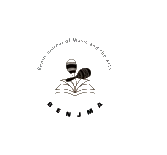The Church, as the ecclesial community of Jesus Christ, holds the divine mandate of evangelism - a commission rooted in the Great Commission (Matthew 28:19-20) - where gospel music plays an important role. Gospel music serves as both a theological and cultural expression capable of fulfilling this mandate. However, in South-Western Nigeria, the practice of gospel music has witnessed significant deviations: performers with questionable moral and spiritual integrity exploit the art form for fame, wealth, and influence.
4
Traditional instrumental ensembles remain vital tools for preserving African cultural heritage. However, for the ikon (xylophone) ensemble in Akwa Ibom, Nigeria, there has been a dearth of systematic analytical works. This study, therefore, addresses this gap by examining how musical instruments in the ensemble function as a coordinated system of ‘musical role-play’ that reflects the social organisation and collective identity of the Akwa Ibom people.
This study explores the vital cultural and musical roles women play within Oshimili communities, despite the longstanding myriad of limitations imposed on them by socio-cultural norms. Historically, women in many African communities have navigated a complex landscape of restrictions that confine their participation in communal life. These restrictions extend into musical traditions where certain performances are exclusively reserved for men, hence it taboo for women to participate or even observe musical performances.
Artificial Intelligence (AI) is steadily reshaping various sectors of human life, and transforming the way people work, interact, and access information. In education, AI offers innovative solutions that enhance both teaching and learning processes. This study investigates the application of AI in music education at the Federal College of Education, Okene, with a focus on how AI-driven tools are being incorporated into music instruction, the benefits derived from AI usage, and the challenges encountered by educators and students.
This study investigates the impact of music on sexual performance and satisfaction among individuals in Maryland, USA, spanning generational cohorts aged 18 to 65. Using Arousal Theory and Social Cognitive Theory, the research explores music’s capacity to modulate physiological readiness and shape sexual expectations through learned media associations. Content analysis focused on lyrical themes, tempi, and genre-specific characteristics from locally consumed music datasets, supplemented with secondary data from national sexuality surveys.
This study examines the impact of Princess Banke Ademola's radio programmes on promoting art music in Nigeria. Through a comprehensive analysis of her radio shows, interviews, and archival materials, this research investigates how her programmes have contributed to the development and popularisation of art music in Nigeria.
Nigeria is a nation rich in natural and human resources, but it is also inundated by acute environmental degradation, which affects its marginalized communities. This has sparked a strong need for environmental advocacy, justice, and awareness, with music serving as a veritable mechanism for the actualization of this quest. This paper investigates the relationship between environmental justice, music, and law in Nigeria.
In Nigeria, the foundation of serious sacred or liturgical musical knowledge and practice is mostly laid and grown in local churches, where many choir leaders who provide musical guidance lack formal music training. As a result, limited musical knowledge is passed down to the soloists and the accompanists they lead.
This research explores the practice of choral conducting in contemporary Ibadan, focusing specifically on select choral directors within the Ibadan metropolis. Through qualitative analysis, the study investigates the pedagogical approaches, stylistic variations, and cultural influences that shape choral music in this region.
The end of the Nigerian Civil War in 1970 marked a critical period in the country’s socio-political evolution, during which the rebuilding of national unity and the fostering of a collective identity were prioritised. By means of a critical discourse analysis of Highlife lyrics and a historical appraisal of the genre’s impact in Nigeria, the role of Highlife music as a cultural agent in the processes of national reconciliation and nation-building during the post-war era is investigated in this study.
